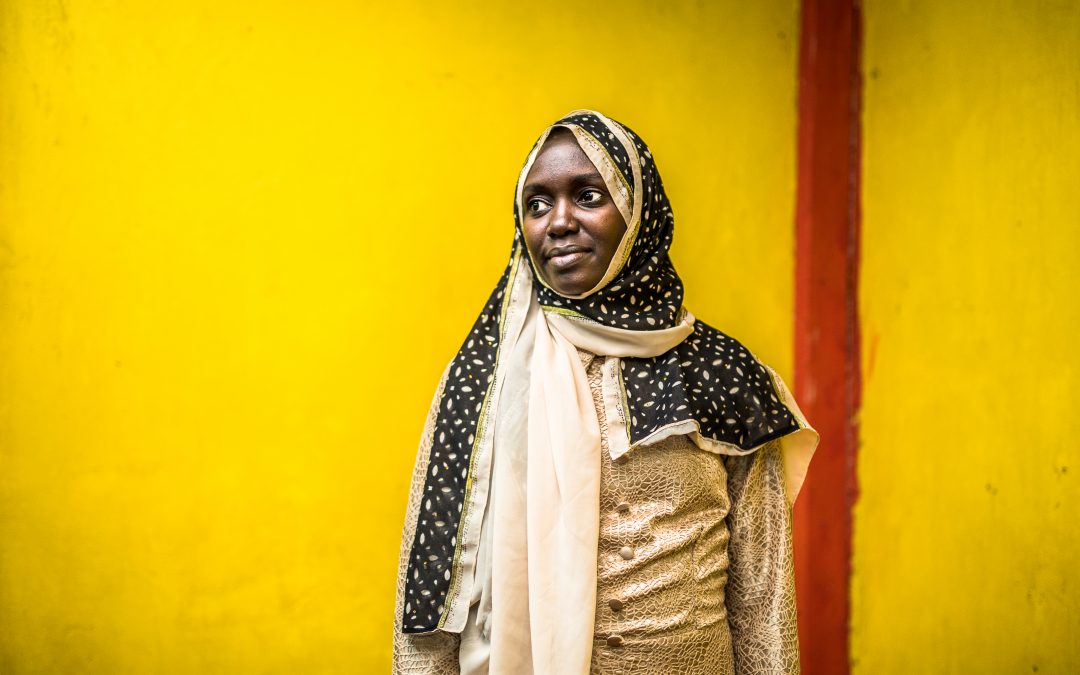One in three African women experience gender-based violence against women (GVAW) in their lifetime. The findings of our State of African Women report indicate that the likelihood of experiencing violence by an intimate partner over one’s lifetime is 36.6% for African women, with non-partner violence is estimated at 11.9%. GVAW is perpetuated by gender norms, beliefs, and practices that tolerate or even justify violence against women.
Women and girls can be exposed to or experience GVAW in many different ways. Young and adolescent women, elderly women, women with disabilities, female sex workers, and LGBTQ+ women face specific challenges and can be more vulnerable to certain types of violence. Human trafficking (which can entail forced marriage, domestic servitude, sexual slavery, sexual exploitation and trafficking into prostitution) is a particular form of GVAW. In zones of conflict and war, displaced or refugee women and girls are particularly vulnerable. The threat of violence follows them throughout every stage of the conflict from the flight from their home country to integration in their new one.
GVAW is one of the core rights areas of the #RightByHer campaign, which seeks to close the gap between women and girls’ rights as enshrined in the Maputo Protocol and their lived experience.
The Protocol calls for:
- The prohibition and eradication of all forms of violence against women, including unwanted or forced sex in both public and private spheres, with a specific provision against marital rape.
- The protection of women and girls from all forms of abuse, including sexual harassment, in school and in the workplace.
- The elderly, widows, women with disabilities, and other marginalized groups of women to be free from gender-based violence and discrimination.
- The elimination of GVAW in armed conflict zones and the protection of asylum-seeking women, refugees and otherwise displaced persons against all forms of violence or sexual exploitation.

Photos/Brian Otieno
The Protocol sets a high bar for state responsibility regarding GVAW. What, then, is the next step to ensure the safety of women and girls across the African continent, per the Protocol’s provisions?
The State of African Women report recommends the following:
- Strengthen efforts to prevent all forms of GVAW. This includes challenging patriarchal gender norms and promoting and strengthening gender equal norms and institutions.
- Develop a comprehensive legal framework to address GVAW, which should cover legal prohibition of all of its forms, its prevention, protection of and support for survivors, and prosecution of perpetrators and remedies.
- Enact legislation on domestic violence specifically, in particular to criminalise marital rape.
- Reform laws that implicitly or explicitly promote or condone GVAW, such as laws that allow perpetrators to marry the rape survivor to avoid prosecution and laws that explicitly exclude marital rape from the definition of rape.
- Enact legislation that ensures that survivors can access the legal and medical support and justice they are entitled to, and strengthen the capacity of all officials in referral pathways, including medical officers, the police, prosecutors, the judiciary, judges and magistrates, on gendered approaches to enhance survivors’ experience of justice, protection and support.
- Strengthen legislation on human trafficking to include the most severe forms and their gendered manifestations.
- Allocate sufficient financial resources to fulfil the comprehensive response of governments to GVAW.
Every woman and girl has the right to live free from violence. Keep up to date with the Right By Her campaign activities on Twitter, Instagram and Facebook and share this post using the hashtag #RightByHer to show your support for making women’s rights a reality across Africa.
